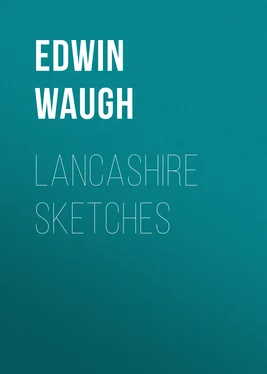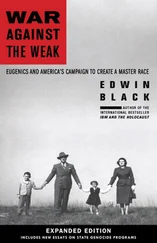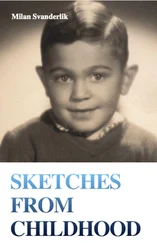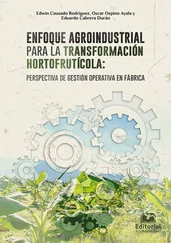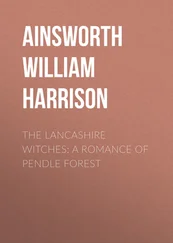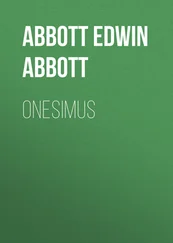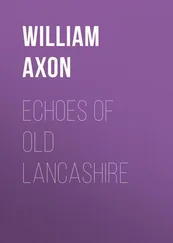Edwin Waugh - Lancashire Sketches
Здесь есть возможность читать онлайн «Edwin Waugh - Lancashire Sketches» — ознакомительный отрывок электронной книги совершенно бесплатно, а после прочтения отрывка купить полную версию. В некоторых случаях можно слушать аудио, скачать через торрент в формате fb2 и присутствует краткое содержание. Жанр: Путешествия и география, foreign_antique, foreign_prose, на английском языке. Описание произведения, (предисловие) а так же отзывы посетителей доступны на портале библиотеки ЛибКат.
- Название:Lancashire Sketches
- Автор:
- Жанр:
- Год:неизвестен
- ISBN:нет данных
- Рейтинг книги:4 / 5. Голосов: 1
-
Избранное:Добавить в избранное
- Отзывы:
-
Ваша оценка:
- 80
- 1
- 2
- 3
- 4
- 5
Lancashire Sketches: краткое содержание, описание и аннотация
Предлагаем к чтению аннотацию, описание, краткое содержание или предисловие (зависит от того, что написал сам автор книги «Lancashire Sketches»). Если вы не нашли необходимую информацию о книге — напишите в комментариях, мы постараемся отыскать её.
Lancashire Sketches — читать онлайн ознакомительный отрывок
Ниже представлен текст книги, разбитый по страницам. Система сохранения места последней прочитанной страницы, позволяет с удобством читать онлайн бесплатно книгу «Lancashire Sketches», без необходимости каждый раз заново искать на чём Вы остановились. Поставьте закладку, и сможете в любой момент перейти на страницу, на которой закончили чтение.
Интервал:
Закладка:
The train is now hard by Blue Pits Station, where it is not impossible for the traveller to have to wait awhile. But he may comfort himself with the assurance that it is not often much more than half an hour or so. Let him amuse himself, meanwhile, with the wild dins that fill his ears;—the shouting and running of porters, the screams of engine-whistles, the jolts and collisions on a small scale, and the perpetual fuff-fuff of trains, of one kind or other, that shoot to and fro by his window, then stop suddenly, look thoughtful, as if they had dropt something, and run back again. If he looks out, ten to one he will see a red-hot monster making towards him from the distance at a great speed, belching steam, and scattering sparks and red-hot cinders; and, in the timidity of the moment, he may chance to hope it is on the right pair of rails. But time and a brave patience delivers him from these terrors, unshattered in everything—if his temper holds good—and he shoots ahead again.
The moorland hills now sail upon the sight, stretching from the round peak of Knowl, on the north-west, to the romantic heights of Saddleworth on the south-east. The train is three minutes from Rochdale, but, before it reaches there, let the traveller note that picturesque old mansion, on the green, above Castleton Clough, at the left-hand side of the rail. His eye must be active, for, at the rate he is going, the various objects about him literally "come like shadows, so depart." This is Castleton Hall, formerly a seat of the Holts, of Stubley, an ancient and powerful family in this parish, in the reign of Henry VIII. Castleton Hall came afterwards into the possession of Humphrey Chetham, the founder of Chetham College, in Manchester. Since then it has passed into other hands; but the proverb, "as rich as a Chetham o' Castleton," is often used by the people of this district, at this day; and many interesting anecdotes, characteristic of the noble qualities of this old Lancashire worthy, are treasured up by the people of those parts of the country where he lived; especially in the neighbourhoods of Clayton Hall, near Manchester, and Turton Tower, near Bolton, his favourite residences. Castleton Hall was an interesting place to me when I was a lad. As I pass by it now I sometimes think of the day when I first sauntered down the shady avenue, which leads to it from the highroad behind; and climbed up a mossy wall by the wayside, to look into the green gloom of a mysterious wood, which shades the rear of the building. Even now, I remember the flush of imaginations which came over me then. I had picked up some scraps of historic lore about the hall, which deepened the interest I felt in it. The solemn old rustling wood; the quaint appearance, and serene dignity of the hall; and the spell of interest which lingers around every decaying relic of the works and haunts of men of bygone times, made the place eloquent to me. It seemed to me, then, like a monumental history of its old inhabitants, and their times. I remember, too, that I once got a peep into a part of the hall, where in those days, some old armour hung against the wall, silent and rusty enough, but, to me, teeming with tales of chivalry and knightly emprise. But, here is Rochdale station, where he, who wishes to visit the village of Milnrow, had better alight.
If the traveller had time and inclination to go down into Rochdale town, he might see some interesting things, old and new, there. The town is more picturesquely situated than most of the towns of South Lancashire. It lines the sides of a deep valley on the banks of the Roch, overlooked by moorland hills. In Saxon times it was an insignificant village, called "Rocheddam," consisting of a few rural dwellings in Church Lane, a steep and narrow old street, which was, down to the middle of last century, the principal street in the town, though now the meanest and obscurest. The famous John Bright, the Cromwell of modern politicians—a man of whom future generations of Englishmen will be prouder even than his countrymen are now—was born in this town, and lives at "One Ash," on the north side of it. John Roby, author of the "Traditions of Lancashire," was a banker, in Rochdale, of the firm of Fenton and Roby. The bank was next door to the shop of Thomas Holden, the principal bookseller of the town, to whom I was apprentice. For the clergy of the district, and for a certain class of politicians, this shop was the chief rendezvous of the place. Roby used to slip in at evening, to have a chat with my employer, and a knot of congenial spirits who met him there. In the days when my head was yet but a little way higher than the counter, I remember how I used to listen to his versatile conversations. Rochdale was one of the few places where the woollen manufacture was first practised in England. It is still famous for its flannel. The history of Rochdale is in one respect but the counterpart of that of almost every other South Lancashire town. With the birth of cotton manufacture, it shot up suddenly into one of the most populous and wealthy country towns in England. After the traveller has contemplated the manufacturing might of the place, he may walk up the quaint street from which the woollen merchants of old used to dispatch their goods, on pack horses, to all parts of the kingdom; and from which it takes the name of "Packer Street." At the top, a flight of one hundred and twenty-two steps leads into the churchyard; which commands an excellent view of the town below. There, too, lies "Tim Bobbin." Few Lancashire strangers visit the town without looking at the old rhymer's resting-place. Bamford, author of "Passages in the Life of a Radical," thus chronicles an imaginary visit to Tim's grave, in happy imitation of the dialect of the neighbourhood:—
Aw stood beside Tim Bobbin grave,
At looks o'er Rachda teawn,
An th'owd lad woke within his yearth.
An sed, "Wheer arto beawn?"
Awm gooin into th' Packer-street,
As far as th' Gowden Bell,
To taste o' Daniel Kesmus ale.
Tim: "Aw could like a saup mysel"
An by this hont o' my reet arm,
If fro that hole theawl reawk,
Theawst have a saup oth' best breawn ale
At ever lips did seawk.
The greawnd it sturrd beneath meh feet,
An then aw yerd a groan.
He shook the dust fro off his skull,
An rowlt away the stone.
Aw brought him op a deep breawn jug,
At a gallon did contain:
He took it at one blessed droight,
And laid him deawn again.
Some of the epitaphs on the grave-stones were written by Tim. The following one, on Joe Green, the sexton, is published with Tim's works:—
Here lies Joe Green, who arch has been,
And drove a gainful trade,
With powerful Death, till out of breath,
He threw away his spade.
When Death beheld his comrade yield,
He like a cunning knave,
Came, soft as wind, poor Joe behind,
And pushed him into his grave
Near to this grave is the grave of Samuel Kershaw, blacksmith, bearing an epitaph which is generally attributed to the pen of Tim, though it does not appear among his writings:—
My anvil and my hammer lie declined,
My bellows, too, have lost their wind,
My fire's extinct, my forge decayed,
And in the dust my vice is laid.
My coal is spent, my iron is gone,
My last nail driven, and my work is done.
"Blind Abraham," who rang the curfew, and who used to imitate the chimes of Rochdale old church, in a wonderful way, for the lads at the Grammar School, could lead a stranger from any point of the churchyard, straight as an arrow's flight, to Tim's gravestone. The Grammar School was founded in the reign of Queen Elizabeth, by Archbishop Parker. The parish church is an interesting old edifice, standing on the edge of an eminence, which overlooks the town. Tradition says its foundations were laid by "Goblin Builders." The living was anciently dependent on the Abbey of Whalley. It is now the richest vicarage in the kingdom. A short walk through the glebe lands, and past "Th' Cant-hill Well," 7 7 Properly, "Th' Camp-hill Well," a well in what is called "Th' Broad Feelt," where the Danes encamped, previously to their attack on the Saxon castle, and their slaughter at Kill-Danes, in the vale below.
west of the vicarage, will bring the traveller to the hill on which, in 1080, stood the castle of Gamel, the Saxon Thane, above the valley called "Kill-Danes," where the northern pirates once lost a great fight with the Saxon.
Интервал:
Закладка:
Похожие книги на «Lancashire Sketches»
Представляем Вашему вниманию похожие книги на «Lancashire Sketches» списком для выбора. Мы отобрали схожую по названию и смыслу литературу в надежде предоставить читателям больше вариантов отыскать новые, интересные, ещё непрочитанные произведения.
Обсуждение, отзывы о книге «Lancashire Sketches» и просто собственные мнения читателей. Оставьте ваши комментарии, напишите, что Вы думаете о произведении, его смысле или главных героях. Укажите что конкретно понравилось, а что нет, и почему Вы так считаете.
